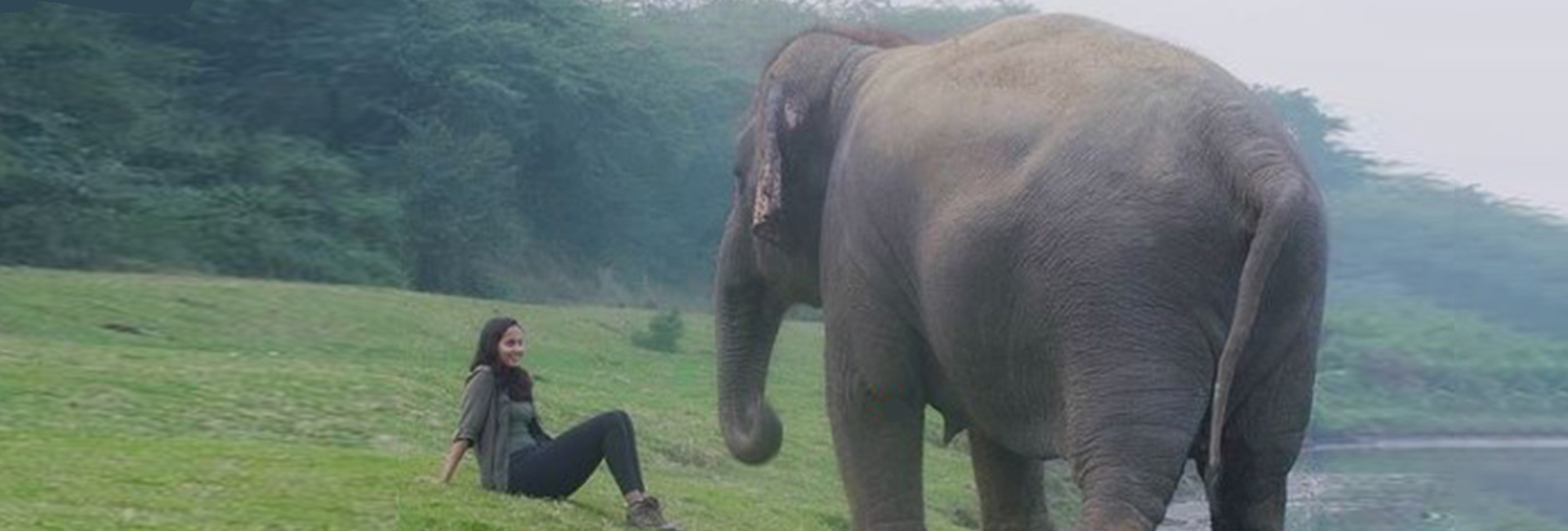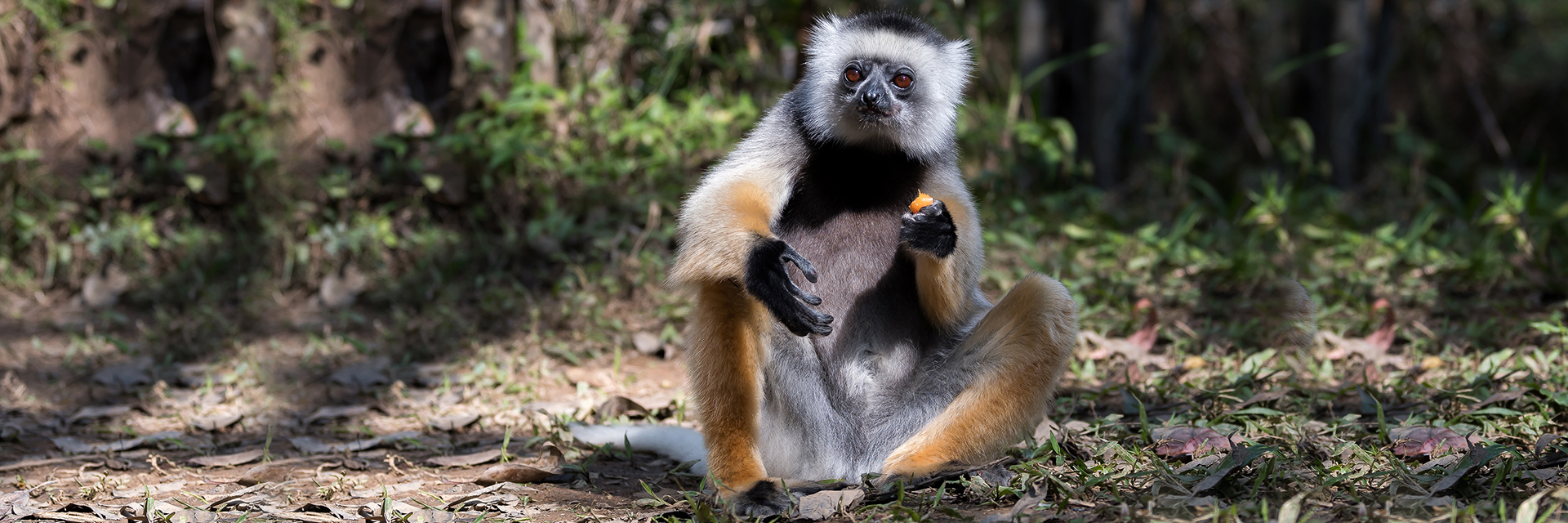(February 15, 2023) When they spot the uniformed men with walkie-talkies watching them – again – Malaika Vaz and her companion, the cinematographer Nitye Sood switch instantly into tourist mode. They huddle together for a selfie and gush over a shawl at a nearby stall. “I don’t want to tell you what country I’m in because I feel like that could expose me to danger,” Malaika Vaz says, in hushed tones, to the Nat Geo podcaster on the other end. This was 2017 and the intrepid young wildlife filmmaker was undercover in a ‘city in east Asia’ in a seafood market in a shopping mall. They were following the illegal trade of manta rays, a convoluted and perilous pipeline that took them from fishing vessels in the Indian Ocean to the Indo-Myanmar border and Guangzhou in China. This was back in 2021 and one of Vaz’s most explosive documentaries.
As one might already have noted, the now twenty-five-year-old Malaika Vaz’s life beggars’ belief. It’s the kind of thing young filmmakers and journalists dream of doing, but rarely gather the courage to accomplish. For Vaz, however, it was almost second nature. Growing up in Goa, Vaz began diving in the ocean when she was 12 years old, immersing herself in the beauty of underwater life.
View this post on Instagram
Discovering the manta ray
She was swimming in the Maldives the first time she spotted a manta ray – “I saw a beautiful black shadow coming out of nowhere. It was curious about me. I was frozen, I wasn’t expecting this giant cloud to come up to me. It was poetic. Ever since then, I have been obsessed with them.”
Even as a child, the Global Indian was captivated by the great outdoors. She is the youngest person to reach the Arctic and the Antarctic with the students at the Ice Foundation. Early on, she learned windsurfing, and sailing and is a professional diver. As she grew older, though, she felt she needed more than just adventure. Having witnessed firsthand the devastation caused by unsustainable tourism, illegal trade, and climate change on the marine ecosystem. And she decided to do something about it.
Foray into filmmaking
View this post on Instagram
She had always had an interest in filmmaking and a conviction strong enough to compel her to quit college and follow her passion instead. She joined a production company as a researcher and not long afterward, was asked to go in front of the camera.
“I realised that while I loved being on camera, shaping the stories and bringing in new perspectives and narratives that hadn’t traditionally been seen on television was what I liked best,” she said. She turned to other roles – she has been a director, writer, and producer, apart from presenting. She is also the founder of ‘Untamed Planet’, a production company that seeks to make an impact in the conservation world.
Scaling new heights in Ladakh
In 2014, she travelled to Ladakh, to train a group of village women to climb mountains. The message: Even the most perilous wilderness might prove safer for India’s women than its cities and villages. At the time she was a student at Mahindra United World College and had already found herself a place in the Limca Book of Records as the youngest Indian to travel to both Polar regions in 2011-12. She headed off to Ladakh with a group of students from school, all part of the UWC’s Outdoor Education Programme. Together, they climbed the Stok Kangri and Lungser Kangri. “The nine women who are training with us are all from villages in the Muslhi valley,” she said. Many had a history of domestic abuse.
Documenting wildlife to conservation
Vaz and her team travel around the world documenting wildlife and exotic locations but that’s only one part of what they do. Vaz also takes on issues like animal trafficking, travelling undercover, and coming face-to-face with dangerous kingpins across the globe. Like tracing manta ray traffickers across Asia, for instance. That became Peng Yu Sai, which was nominated for the ‘Green Oscars’ and takes the viewer into a murky world comprising fishermen, middlemen, traffickers, and even armed forces personnel as Vaz tries to protect her beloved nautical giants.
She describes, in the Overheard podcast, seeing the manta ray trade for the first time. She was in a village in eastern India when a local farmer told her to come to see the “flat pancake fish.” Intrigued, she wandered through the bustling seafood market, which overflowed with every kind of exotic marine life – more than she had seen in the ocean itself. Hundreds of people jostled through the market, the air ripe with the smell of sweat and dead fish – “You cannot wash that smell off you,” she remarks. She saw piles of tuna, crab, prawn, bull shark – and then, to her dread, “twenty-five dead manta rays lying on the floor. It felt like a waste of life.”
Malaika Vaz is also behind Nat Geo Wild: Living with Predators, a three-episode series that “documents the stories of the real heroes of Big Cat conservation – local communities.” In each episode, Vaz talks with ex-poachers, tribal communities, and the forest guards who are at the forefront of protecting India’s Asiatic Lions, leopards, and tigers. The series aired across the Asia-Pacific, South Asia, Middle East, and North Africa, starting on August 15, 2020.
The power of stories
She has also produced films about migrant workers through the National Geographic Covid-19 fund for Journalists, explored bat conservation after the species received a bad rep during the pandemic, and elephant tourism.
Through it all, filmmaking has been her medium. “We need to phase out wildlife trade,” she told Business Insider. “Given that consuming wildlife is still seen as a marker of ‘making it’ in parts of Asia and globally, I think storytelling can make a difference. Powerful films can advocate for a world where we’re not consuming endangered species.”
- Follow Malaika Vaz on Instagram



